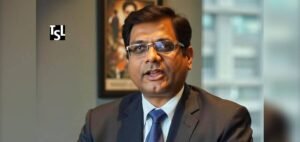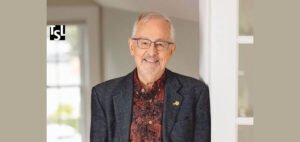In today’s constantly evolving healthcare arena where information moves at the speed of light, but trust stays behind, there is one woman who stands at the intersection of science and society, hearing not what people say, but what they feel. She is none other than Professor Heidi Larson, the Professor of Anthropology, Risk and Decision Science London School of Hygiene and Tropical Medicine and Institute of Health Metrics & Evaluation, University of Washington, Seattle.
She understands that health is not just a prescription-it’s a promise. And promises, in her opinion, are founded upon trust.
Navigating the Storm of Mistrust
The twenty-first century has witnessed remarkable advances in medicine, science, and technology, yet public trust in these very systems has become increasingly fragile. Nowhere is this more evident than in the realm of vaccines-a cornerstone of public health that has, paradoxically, become a flashpoint for skepticism and resistance. In this volatile landscape, Heidi Larson emerges as a singularly influential figure. Her writing does not just respond to the technical aspects of immunization; it gets into the complex interplay of beliefs, feelings, and social forces behind decisions about public health globally.
Larson’s path from biomedical engineering to anthropology, and finally to the leading edge of global health communication, demonstrates an abiding passion for learning how human experience informs the advance of science. As the founder of the Vaccine Confidence Project, she has established a new standard for public health-one that places empathy, cultural understanding, and the subtle complexities of human action at the forefront.
The Making of a Global Health Leader
Heidi’s professional and academic path is as varied as it is esteemed. Starting her education at Harvard in biomedical engineering, she navigated to the nuances of human behavior and how it arises at the interplay of technology and society. Working with Save the Children and UNICEF in Israel and Nepal introduced her to the extent to which culture influences the embrace of new technology and health interventions.
A turning point was reached when she went for a PhD in anthropology at the University of California, Berkeley. This change saw the start of a lifelong mission to understand the dynamic between public sentiment and scientific innovation. Her later positions at Apple Inc. and Xerox PARC gave her the opportunity to observe how teachers, communities and organizations coped with the introduction of computers — insights that would go on to inform her about how societies cope with medical technologies.
Larson’s re-entry into the global health sphere, through stints with UNICEF in Asia and the South Pacific, then at the World Health Organization and UNICEF Headquarters, gave her a broad overview of how political, cultural, and emotional considerations affect the uptake of health interventions. It was also during this time that she developed a heightened sense of awareness of the growing questioning and resistance to vaccines-a development that would become the focal point of her scholarship and career.
The Vaccine Confidence Project
In 2010, seeing the acute need to understand and measure the drivers of public trust and distrust in vaccines, Professor Heidi Larson established the Vaccine Confidence Project (VCP). This trailblazing organization is not merely a research team; it is a worldwide listening post, tracking public opinion on immunization in real time. Using data-driven insight and culturally responsive engagement techniques, the VCP aims to understand not only what individuals think about vaccines, but why they think it. Furthermore, they use those insights to work with local groups to build trust and address confidence gaps.
Under Larson’s leadership, the VCP has become a go-to resource for governments, health authorities, and international organizations. Its approach is rooted in the belief that restoring trust takes more than the sharing of scientific facts-it takes serious listening to the fears, hopes, and lived realities of communities.
The Anatomy of Vaccine Hesitancy
Heidi Larson has shed light on the intricate weave of factors that fuel vaccine hesitancy. Misinformation and online echo chambers are certainly guilty of fueling public skepticism, but Professor Heidi Larson posits that its origins are much more profound. Politics, religion, culture, and human emotion are all a potent force that inform attitudes toward vaccines, tending to use social media to maximize its effects.
Historically, vaccine resistance episodes were transient and localized. Now, in a time of abundant networking, these problems have gone mainstream, crossing borders and cultures. What was once a passing local issue can now ignite a worldwide movement in days. Heidi Larson’s research highlights the need to consider not just the substance of misinformation, but also the emotional manipulation that so often underlies it.
She points out that among the most emotionally compelling stories about vaccines-such as those regarding adverse effects-there is a disproportionate ability to influence public opinion, even when investigations show that risks are slight or anxiety-induced. On the other hand, powerful stories of people who have been harmed by vaccine-preventable diseases can be great drivers for restoring trust and promoting uptake.
Strategies for Rebuilding Trust
One of Larson’s key messages to policymakers and communicators is the importance of not solely focusing on “the science says” during crisis times, but embedding scientific evidence and guidance in the context of people’s felt needs. In other words, make the guidance relevant. Trust, she argues, is not constructed solely on whether information is true, but whether the health intervention is seen by people as related to their day-to-day reality. There needs to be frank engagement with populations, admitting ignorance and dealing with wider concerns which go beyond the immediate health cause.
Heidi Larson supports the development of scientifically valid and compelling stories that appeal to various groups. She points to the success of peer-to-peer storytelling, like projects in Denmark where adolescent girls developed social media messaging for their peers to encourage HPV vaccination. These efforts, based on familiarity and credibility, have been priceless in dispelling vaccine scares and regaining public trust.
At the center of Larson’s style is a deep respect for the public’s ability to cope with risk. She warns scientists and health professionals against underestimating this capacity or glossing over risks in a bid to soothe fears. Rather, she advocates openness and honesty, balanced with straightforward explanation of the significance, safety, and applicability of health interventions.
The Ripple Effects of Broken Trust
Larson’s work also highlights the long-term implications of lost trust in health systems. She describes the case of the dengue vaccine scandal in the Philippines, where initial confidence in the health system was broken after concerns were raised about a new reported vaccine risk. The repercussions went beyond the vaccine itself, eroding confidence in other health programs and interventions.
This episode, and others such as it, emphasizes the interdisciplinarity of trust as a condition of public health. Broken trust is hard to repair, and its loss can have snowball effects on uptake of critical health services. Larson’s findings have led health authorities to move beyond narrowly focused approaches to interventions to a more holistic understanding of the relationship between communities and health systems.
Technology: Friend or Foe?
The digital age has altered the face of health communication, offering unprecedented opportunities as well as daunting challenges. While social media has facilitated the quick spread of information, it has also emerged as a hotbed of myths, misinformation, and disinformation.
Larson cautions that the public health community cannot allow the space to fall into less credible hands.
She stresses the importance of proactive engagement with new technologies, such as artificial intelligence, to leverage their potential to aid evidence-based health interventions. The scientific community, she contends, should not be swayed by the errors of history by avoiding these platforms. Rather, they should take the lead in creating new approaches to establishing and maintaining public trust.
Finding Common Ground
Perhaps one of Larson’s greatest contributions is her insistence upon seeking commonality, even where there is strong skepticism. She warns against casting aside those skeptical of vaccines as merely “anti-science.” Many, she notes, are not anti-science in their opposition, but are demanding greater evidence or concern based on individual or community experiences.
Successful outreach, Professor Heidi Larson contends, entails a willingness to listen and respond to the issues of greatest concern to the people being addressed. This can sometimes mean venturing out of the strict bounds of health communication and engaging with wider social, economic, or cultural issues. While there will be some who will remain inaccessible, she encourages policymakers and practitioners to aim for those still willing to be heard.
The Global Listening Project – building resilient societies in the face of crisis
In 2021, Heidi Larson received a MacArthur Award which allowed her to expand on the learnings of the Vaccine Confidence Project and conduct global listening in multiple countries to document the public experience of the pandemic to inform future preparedness. As other funders joined the effort, the The Global Listening Project was established as a non-profit and has surveyed and listened to multiple groups in 70 countries, and now designing engagement strategies.
Larson’s research has profoundly transformed the manner in which global health leaders conceptualize risk, trust, and decision-making. Her cross-disciplinary approach, based on both scientific precision and profound empathy, provides a model for solving the intricate issues of vaccine hesitancy and public distrust.
As the globe wrestles with its changing health challenges, from pandemics to the growing epidemic of digital disinformation, Larson’s advice is needed now more than ever. Her reminder that the development of strong and responsive health systems will take more than technological leaps-ongoing attention to understanding and connecting with the people side of health-is as timely as it is important.
Ultimately, the promise of public health is not only about preventing disease, but about creating trust, hope, and a common sense of purpose. With her groundbreaking work, Professor Heidi Larson has demonstrated that the road to vaccine confidence-and to healthier societies-leads first through listening, empathy, and a steadfast commitment to the people at the center of every public health challenge.


